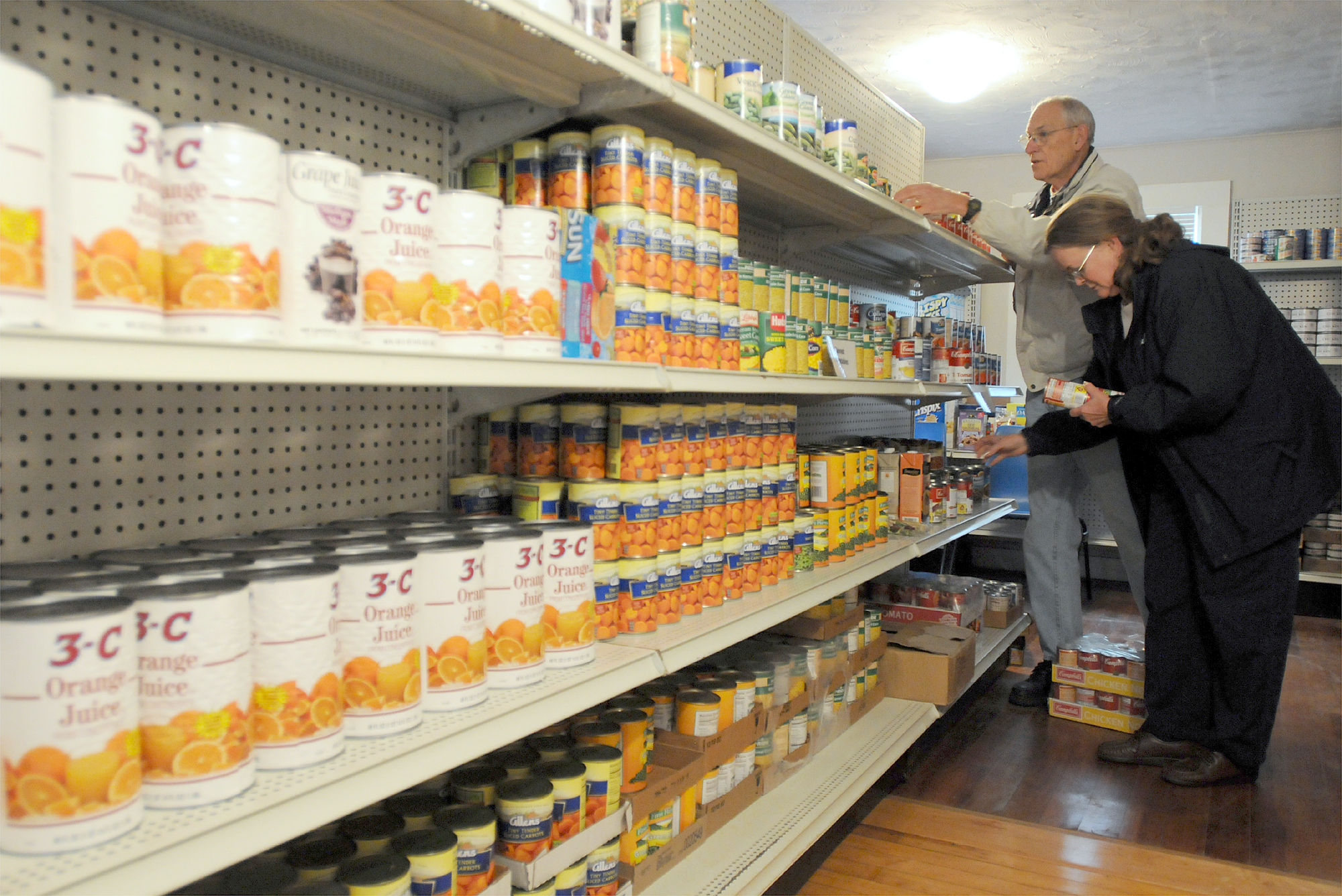As Need Grows, Some Atlanta Food Pantries Cope With Fewer Volunteers

Some food pantries are having to cut back on operations, since they rely so heavily on volunteers who are at risk from COVID-19.
Jason R. Henske / Associated Press
As Atlantans lose work, many are likely to turn to food pantries for help. The Atlanta Community Food Bank, which works with partners in almost 30 counties in metro Atlanta and North Georgia, has been preparing for a surge in need.
At the same time, some food pantries are having to cut back on operations, since they rely so heavily on volunteers who are at risk from COVID-19.
Mercy Seed, a resource center in Gwinnett that typically distributes food twice a week, has cut back to just giving out food on Saturdays.
“Because most volunteers are part of the vulnerable population. They’re elderly,” said DeVante Hudson, who helps run the resource center.
Atlanta Community Food Bank CEO Kyle Waide said other food pantries are running into similar issues.
“We know that many are facing challenges around maintaining their volunteer base,” he said. “And at the same time, we know the vast majority are continuing to operate.”
Some are working on modified schedules, Waide said, and many are changing the way they distribute food to maximize social distancing. The Food Bank itself is, for now, not working with any volunteers at its headquarters. The non-profit typically works with 30,000 volunteers a year, he said.
“We are all adapting as quickly as we can and as creatively as we can to the new reality,” Waide said.
Waide said the Food Bank has heard from partner organizations that they are experiencing more demand, and the Food Bank has had increased searches on its website.
And a new text service, launched last week, has had several thousand people use it, he said. (Here’s how that service works: Text “findfood” or “comida” to 888-976-2232, it will ask for a zip code, and then respond with the nearest food pantries.)
That text service can also help people find nearby places to volunteer if they want to help, said Waide. And Hands on Atlanta and United Way are also accepting volunteers.
At Mercy Seed, Hudson said its partner church, New Mercies Christian Church has been a big help, packing boxes to be distributed. And families can get food without getting out of their cars.
And despite going down from two days a week to one, Hudson said this past weekend they saw an uptick. They served 55 families in a day, while they typically get about 40 in a normal week.
“We’ve been trying to cope the best we can given this horrible epidemic, and we are looking to continue to serve during this time,” he said.
This story was a result of an engagement project at WABE, asking people to share their experiences during the pandemic.
This week’s question: Is your job involved in responding to the crisis?
Engagement at WABE is powered, in part, by our collaboration with America Amplified, a Corporation for Public Broadcasting-funded initiative to use community engagement in our reporting.








